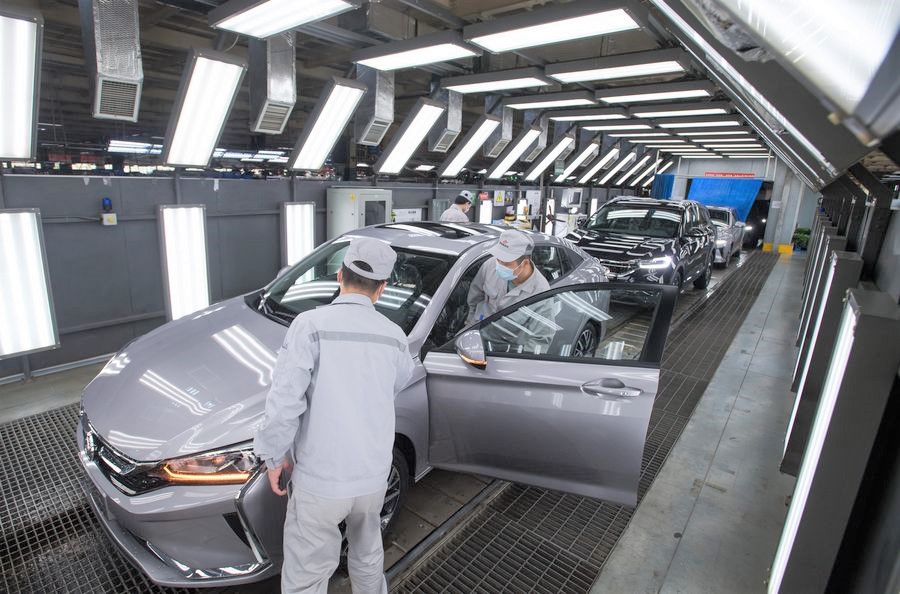Private firms sustain economic momentum in Hubei


Private enterprises have invested 476.5 billion yuan ($68.5 billion) on 1,577 new projects in Hubei province as part of the economic revival efforts in the region following the COVID-19 epidemic, according to the All-China Federation of Industry and Commerce.
As Hubei is gradually resuming orderly operations after being ravaged by the pandemic, private enterprises helped sell local products worth 349 million yuan. They were also in the forefront in terms of job creation, with 2,193 private firms offering over 100,000 jobs in Hubei province, the ACFIC said.
"A large number of private enterprises have worked together to bolster Hubei's development, especially when the province was going through a critical period of economic recovery," said Xu Lejiang, deputy head of the United Front Work Department of the Communist Party of China Central Committee and secretary of the Leading Party Members' Group of the ACFIC.
Xu's remarks came after the ACFIC, the Hubei government and the China Society for Promotion of Guangcai Program, joined hands with leading private companies to help restore economic and social development and eliminate poverty in Hubei.
Notable firms includes Chint Group, China's leading industrial electrical equipment and new-energy enterprise, Shanghai-based conglomerate Fosun International and leading agricultural firm New Hope Group.
The ACFIC is looking to act as a bridge between the government and nonpublic enterprises and is a national federation that takes innovative measures to better serve private businesses, protect entrepreneurs' rights and interests and create a sound business environment.
"Private enterprises must give full play to their advantages, make good use of the economic advantages that come from cooperation and closely combine business production with the prosperity of the domestic economy," said Xu.
By constantly cultivating international competitiveness, private companies are expected to be the "participants, organizers and leaders" of the nation's innovative development, he said.
Over the past 40 years, the private sector has become an indispensable force behind the country's development. The private sector contributes to more than 50 percent of tax revenue, 60 percent of GDP, over 70 percent of technological innovation, 80 percent of urban employment and 90 percent in new job creation and new firm establishment.
During the promotional activities earlier this year, private companies floated 41 projects involving an investment of 122.88 billion yuan. These projects covered a slew of emerging new tech industries like chip manufacturing, new energy batteries, new building materials, as well as projects such as smart medical care, commercial, cultural and creative tourism.
Nine Dragons Paper Holdings Ltd invested 12.5 billion yuan on a paper base and related industrial projects in Hubei. Fosun plans to invest 5 billion yuan on a smart cultural, educational and recreational community in the province.
"Hubei has become a hot spot for investment and development," said Zhang Wenzhong, founder of Wumart Group, which plans to build a large digital logistics center to transport products from Wuhan to all over the country.




































